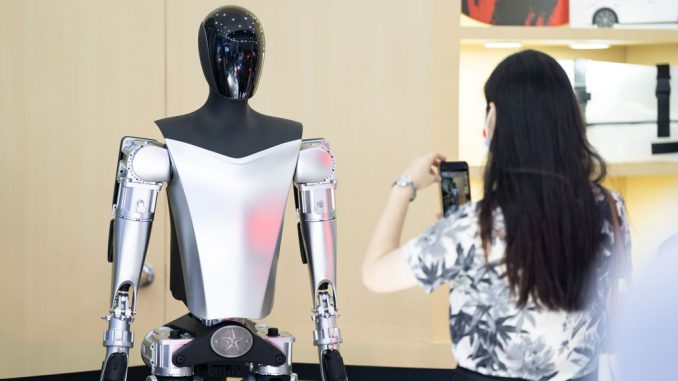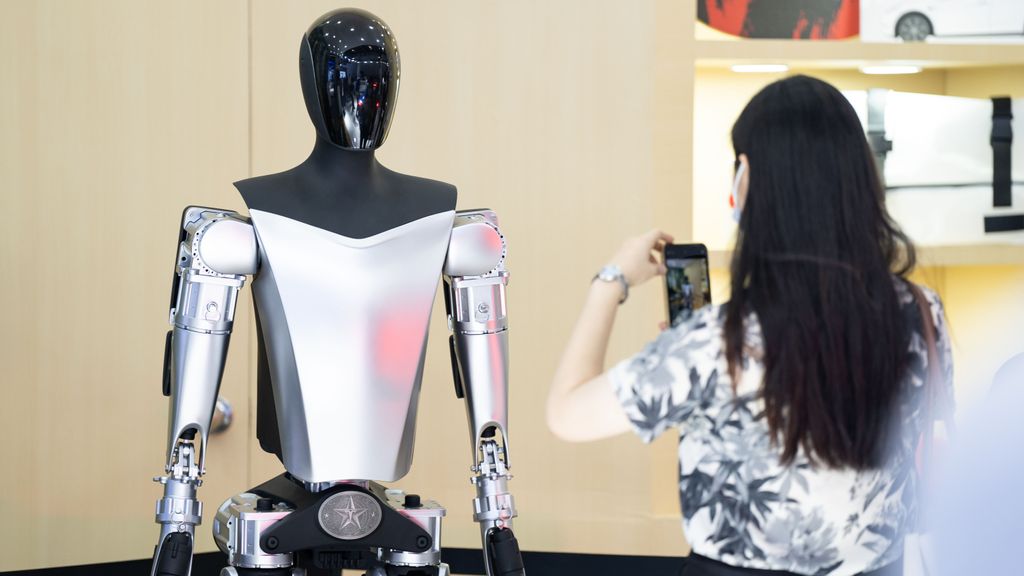
By Anan Ashraf
Tesla Inc‘s (NASDAQ:TSLA) humanoid bot Optimus, like the company’s electric cars, relies on neural networks and cameras, eschewing Light Detection and Ranging (LiDAR). The company’s executives, including the chief himself, reinforced this.
Tesla’s Director of Autopilot software, Ashok Elluswamy, emphasized the effectiveness of this approach, stating it’s the “solution” for robotics.
He pointed to a video showcasing Optimus’ adaptability and precision, transitioning from sorting objects to yoga poses with balance and flexibility.

“Neural networks + cameras work amazingly well and are really the solution to robotics. Same solution for the car, for Optimus, and will be for all such artificial animals,” said Elluswamy on X. “It will become so obvious over the coming years, we’ll be wondering why anyone thought those (LIDAR, RADAR, ultrasonics, HD maps) were a great idea,” he said.
“These robots do use additional sensing such as audio, proprioception, temperature etc., just like most animals. But no LIDAR, RADAR, ultrasonics, HD maps shenanigans. It will become so obvious over the coming years, we’ll be wondering why anyone thought those were a great idea,” said Elluswamy further.
CEO Elon Musk joined the discussion, mentioning upcoming improvements in Optimus’ actuators, sensors, and mechanics, even humorously suggesting it might “do the ballet one day.”
“Improvements are also coming in the actuators, sensors and overall mechanics of Optimus,” said Elon Musk on X.
Why It Matters: In 2019, Musk criticized LiDAR, considering it a “fool’s errand,” and reiterated his preference for cameras and neural networks.
While several autonomous vehicle companies, including Alphabet, Inc.’s Waymo and General Motors’s Cruise, use LiDAR, Musk argued that roads are designed for biological neural networks and eyes, favoring digital neural networks and cameras.

He noted SpaceX‘s use of LiDAR on its Dragon spacecraft for docking with the international space station.
Tesla introduced Optimus two years ago and has created about 10 units. During a recent earnings call, Musk announced plans for the first Optimus bot with Tesla-designed actuators to be ready by November.
Tesla designs its own actuators, as no supplier meets its requirements. Musk has also said he’s “pretty confident” that these bots will be performing useful tasks in Tesla factories by next year.
© 2023 Zenger News.com. Zenger News does not provide investment advice. All rights reserved.
Produced in association with Benzinga
Edited by Judy J. Rotich and Newsdesk Manager
